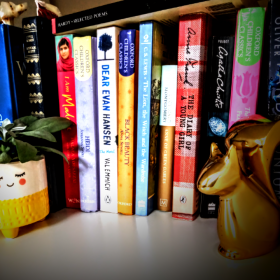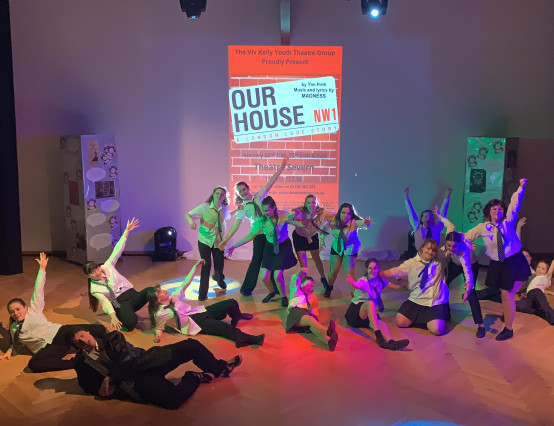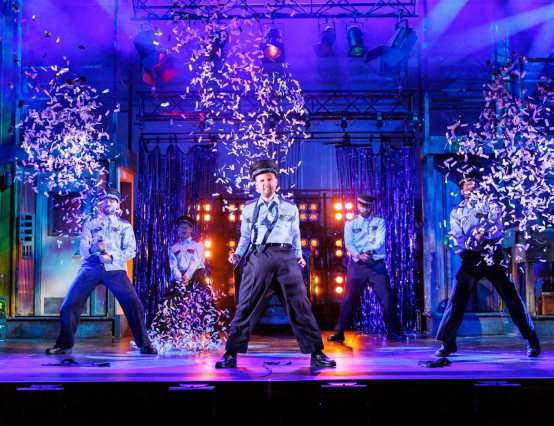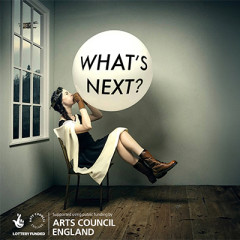Upon entering the breathtakingly grand and beautiful Old Joint Stock building, my friend and I were in awe of the incredible interior of the listed building, bashfully hidden behind Birmingham’s city centre. After making our way up the authentic wooden staircases, we were ushered down a candlelit and crimson-hued corridor leading to the theatre.
In the modest, yet intimate space, just two rows of comfortable chairs were set out before a simple stage. A rustic wooden chair and an intriguing object (that we would later discover was an old-fashioned flight controller) were awash with soft red and amber lighting. More atmospheric still, was the classy, jazz-type music that immediately transported you to the era of Mae West, gramophones and feather boas.
Before too long, the lights waned and the music succumbed to static beeping and a distant radio voice that became more and more urgent as the hooded figure, who appeared slumped over the stage, refused to stir.
After a theatrical start, we are introduced to the driven, and headstrong Harriet Quimby, so self-assured it was inspiring. Decked out in a take on the pilot’s signature plum flight suit, you’d be fooled into thinking that West End actor Victoria Lucie herself was utterly enamoured with aviation, such was the rapturous passion that emanated from the stage.
Though only one woman commandeered the stage, dozens of characters were somehow conjured up - and vividly too. Artfully and effortlessly, Lucie flitted between characters in sardonic conversation re-enactments - it was almost like she simply stepped out of herself to hop into the role of the abrupt and authoritative newspaper editor. Incredibly, as her expression contorts and her posture is transformed, you can almost picture the man himself, sideburns and sagging jowls, leaning languidly in his leather chair.
Engaging and even somewhat consuming, I began to feel each success, setback, and snub as my own as we were shown the surreal reality of the 1930s where women make the papers for taking a photo on their own camera. Yet when she despairingly laid bare the ugliness of a man’s perpetual doubt in a woman’s ability, it struck me suddenly how this reality still sadly seeps into today’s society.
Quimby’s curiosity, compassion and courage were what compelled writer Matt Roberts to ‘shine a light’ on the legacy of this ‘unsung hero’. For actor Victoria Lucie, this work is about leaving audiences feeling empowered. Incredibly, despite not being written by a woman, this play showcasing female repression resonated superbly, filling me with hope for a future of equality.
Humour, wit, anguish and euphoria fought throughout the hour-long production until a symbolically weighty finale that left me with thrilled shivers. What’s Next was an intimately real show, about one woman’s brave endeavour to be herself in spite of the patriarchy. Topped off with an exquisite and cosy theatre, it was a truly memorable and meaningful night.
(Written By Matt Roberts and directed by Tom Stabb, What’s Next is a poignant piece based on the true story of the pioneering Harriet Quimby (played by Victoria Lucie), the first American woman to earn a pilot’s licence. Recommended for audiences aged 13+, after showing for two nights in The Old Joint Stock theatre in Birminhgam, it moves on to tour the UK in cities such as Liverpool, Manchester, and London. Tickets available in the links above for events at The Old Joint Stock, and for all What’s Next venues.) This review was first published for Elementary Whatson.


















0 Comments